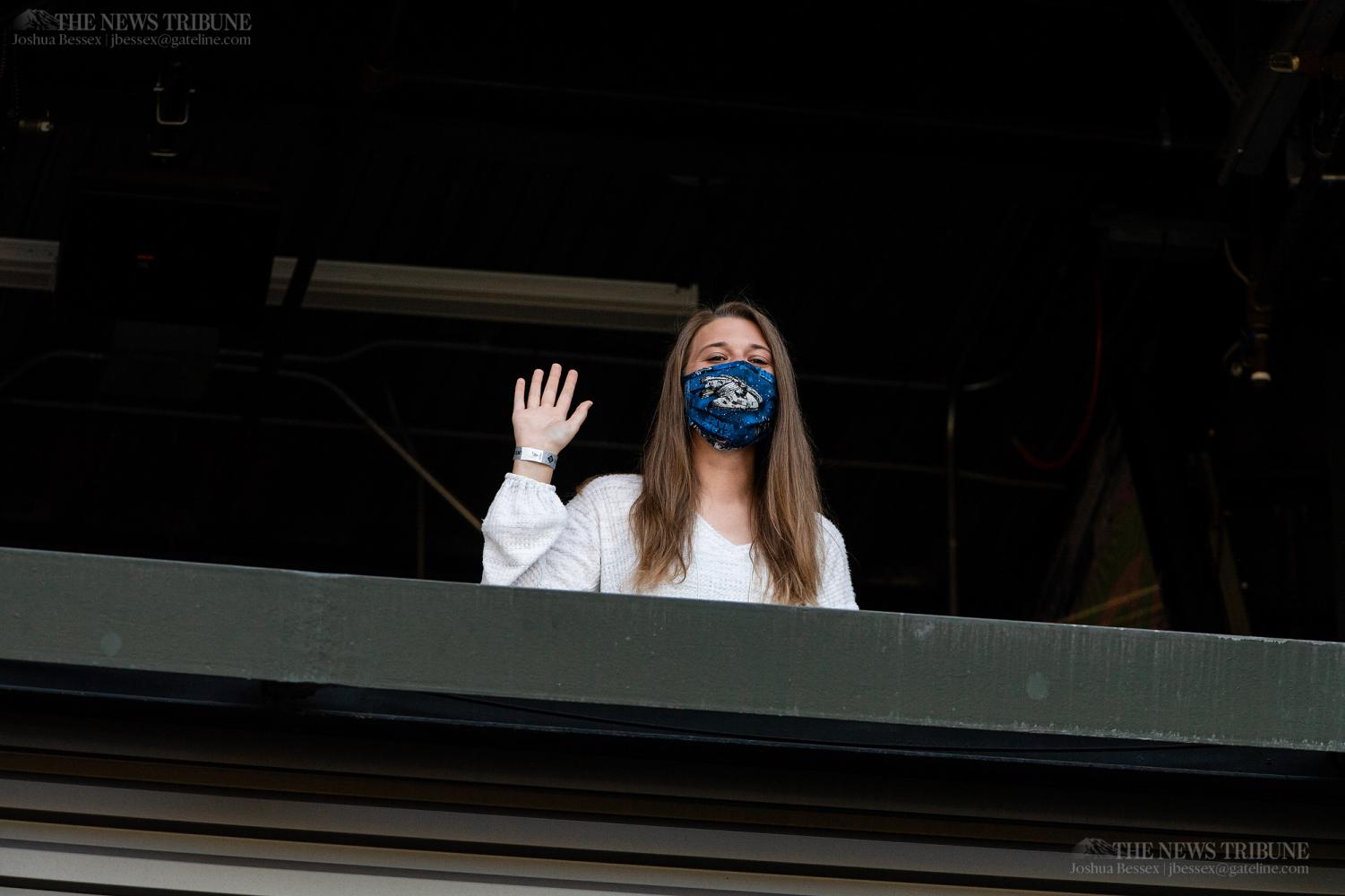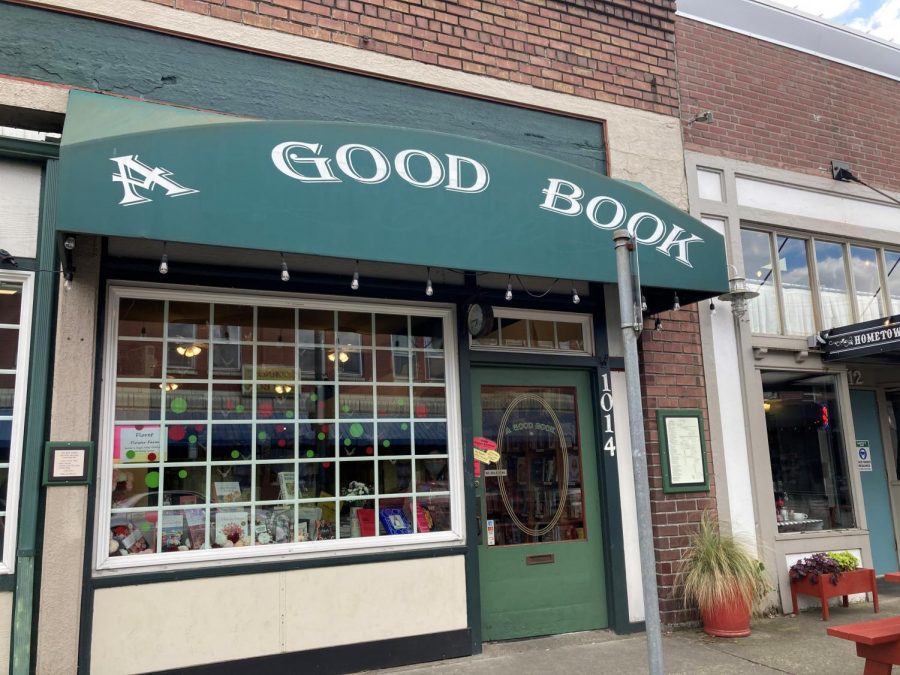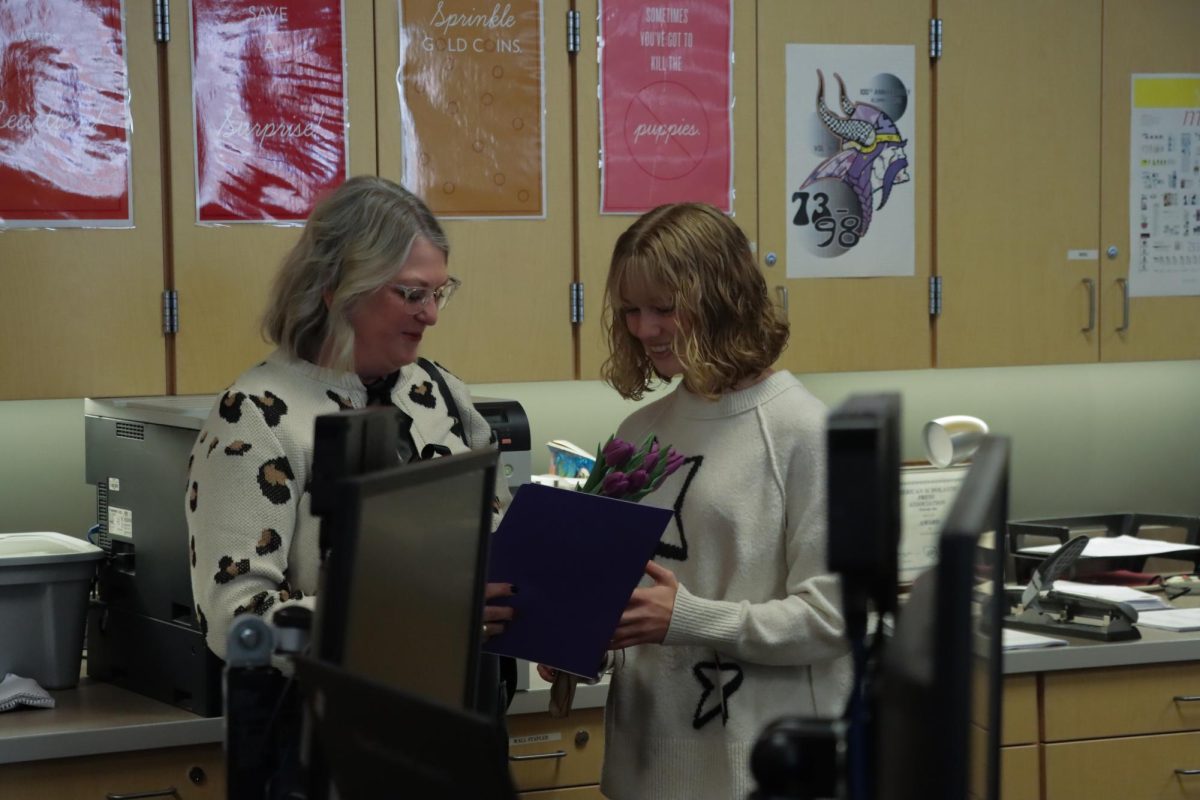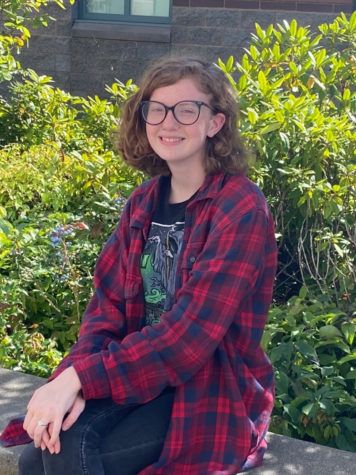
Lauren Smith has been working professionally as a multimedia journalist in the Pacific Northwest for the past six years. She is currently a sports reporter for The News Tribune in Tacoma, and her work also often appears in The Olympian, Bellingham Herald and Tri-City Herald. Her primary beat is covering the Mariners, but she also helps with coverage of the Seahawks and high school sports during the baseball offseason.
Smith had more than 400 bylines in 2020 between sports coverage and pitching in with news coverage, and her work has collected more than 1.5 million page views this year.
She is a graduate of Emerald Ridge High School and the University of Washington. She was a member of the JagWire newspaper staff at ER and attended state and national conventions, and worked for The Daily in college.
She also teaches InDesign during summer journalism workshops.
How did you decide to go into journalism as a career?
“If anyone out there has seen the show Gilmore Girls, the daughter on the show works on the newspaper staff in school. I was really into that show when I was in junior high and high school, so I decided to join the journalism class when I got to high school. Then, I just fell in love with it. There were just so many things you could do,” Smith said.
What got you into sports reporting particularly?
“(In high school) we had an instance where the monthly football story didn’t get written. I got tapped to go write the story. My adviser at the time said, ‘You’re good at this, why aren’t you doing this more?’ and that’s how I got into sportswriting,” Smith said.
“I originally wanted to do other things like write about arts or news or features. I knew sports. I watched sports. I played sports growing up. My dad watched the Mariners all the time when I was a kid, so I grew up with sports, but I also wanted to try other things,” Smith said.
How has the pandemic changed what you do?
“The pandemic changed a lot about how my job works. When it started, I was down in Arizona for spring training with the Mariners. At that point, down there, things still seemed pretty normal (in February and early March). Things were going on as they would day-to-day. We would go in the clubhouse in the morning and talk to players face-to-face. We would have our meetings with the manager. They would play a game in the afternoon (or two depending on what the schedule was). But, eventually access to the players and coaching staff was limited so they could keep everybody safe and separated.
“Then during the baseball season, every day we would talk to players and coaches on video calls, so (the pandemic) changed a lot about how our day-to-day worked. Normally if I want to go down to the clubhouse to talk to a certain player, I can do that during availability times. I can take a couple minutes to talk to him about whatever I’ve decided to write about that day. When the pandemic happened, a lot changed. With the new safety protocols, we only spoke to players and coaches on those group video calls, so reporters were often writing similar stories based on who we were able to talk to each day.”
How is getting to know people on a sports team you report on changed how you think or write about them?
“When you’re in a position that you get to talk to professional athletes or college athletes or even high school athletes often, you get to know the person behind the athlete more, which I enjoy. It’s really interesting to get to know the human side and it gives you more perspective on what you want to write about when you learn more about their lives or what motivates them to play their sport. That makes for some interesting stories because it can give readers something to connect and relate to,” Smith said.
As a female in sports reporting, have you ever faced any gender discrimination?
“I think a lot of women deal with this to some degree at some point in their careers. I think I’ve been fortunate to work with a lot of great men and women in our local market and beyond, and have been treated with professionalism. I will say I think it is important as a woman working in journalism, particularly in sports, to lift up other women currently working in the field and encourage those coming up behind us to continue to reach for their goals. I’ve been very fortunate to work alongside some incredible women over the years, and have been inspired by them, and I think their work should be celebrated,” Smith said.
What advice would you give a high school journalist?
“If you’re a high school journalist and you’re covering sports at your school, be on Twitter, be on other social media platforms and cover your own games,” Smith said. “Because the local newspaper covers so many schools, we are not going to be able to be at everything your school does. For example, Puyallup High School is very good in several different sports, but when I was a preps reporter I wasn’t able to be at every single football game Puyallup played because I also covered 70 other schools. I think high school bloggers can have a big impact in that way.”
Tell us about your experiences working on Emerald Ridge’s paper and did these experiences help you later on in your life?
“I joined my sophomore year and I worked on the paper for all three years of high school. I did a bunch of different things, between news reporting, features and sports. I also did a lot of photography when I worked at the paper and a lot of designing. I think what I enjoyed the most was that you can build really great relationships with people,” Smith said.
If you could say one thing to yourself when you were first getting into journalism, what would you say?
“Probably, ‘Just keep going. It’s all going to pay off eventually,’ and I think I probably, deep down, knew that it would if I kept pushing. But, sitting where I am now I would tell 23-year-old me, ‘This is going to pay off, just keep doing it, even if it seems tedious or even if it seems not very important, it could all be important in the long run,’” Smith said.
How do you maintain a healthy work-life balance?
“It’s really, really tough to do because the hours you work as a sportswriter can vary a lot. Especially when you’re freelancing, like I did early on in my career, it’s really hard because you have to be ready as soon as somebody calls on the phone and says, ‘I need this.’ At that point it’s hard to balance. You just have to prioritize what’s important,” Smith said.
How would you say that you are at handling stress and do you have any advice for handling stress?
“It’s one of those things I think you learn by doing. For sports specifically, (the work) has to be done by a certain time, and if it’s not done, there’s a hole in the newspaper, right? And there can’t be a hole in the newspaper. So, if you don’t get your job done right, then all the sudden you’re adding extra stress to whoever your designer is that night because they now have to find something to fill that hole with. As a reporter, I know I have a responsibility to get the work done quickly and efficiently, especially when on a tight deadline, and I think any stress that comes with those speedy turnarounds is something you learn to manage the more you write,” Smith said.
While you were still working with your high school journalism group was there anything that someone you interviewed said that really stuck with you?
“I can’t remember a specific example of what somebody said, but I always thought that it was really cool to be able to talk to people and kind of relate to them, and learn about them and what made them tick,” Smith said. “I got to learn a lot about my peers even if I wasn’t necessarily friends with them outside of school. So, I think that stuck with me.”
Was there anything you thought we would ask but didn’t, or anything you wanted to add?
“If journalism or whatever career path you choose is something you really want to do and you’re really passionate about it, don’t give up. Keep taking even the smallest job because if you work hard enough, eventually it’s going to break,” Smith said.



